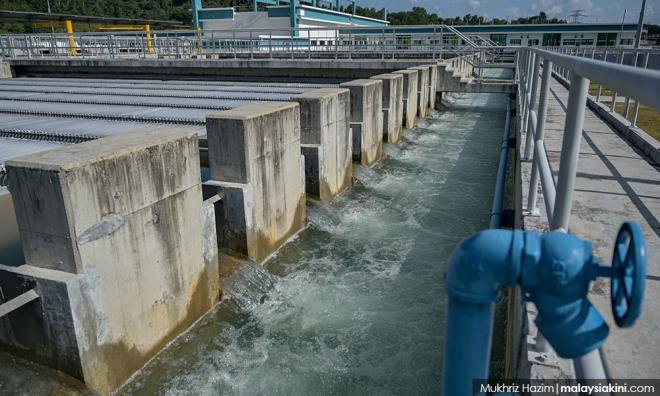
CORONAVIRUS | Malaysian researchers are studying if traces of the Covid-19 virus found in the sewerage system may be used to detect infections in communities, particularly those who do not show any symptoms (asymptomatic cases).
Virologist Associate Prof Dr Nazlina Ibrahim told Bernama the most vital aspect of the study would be to check the viral content of the sewage in any particular area in order to identify communities with Covid-19 positive cases but have yet to be screened.
“Sewage samples from the sewerage system in potential high-risk areas can be taken to monitor the presence of Covid-19 virus. The findings will help the Ministry of Health to identify infected locations and carry out health screenings for the residents there,” said Nazlina, who is a senior lecturer at Universiti Kebangsaan Malaysia’s Faculty of Science and Technology.
On March 28, Environment and Water Minister Tuan Ibrahim Tuan Man had said that his ministry would conduct a comprehensive study to find out if the Covid-19 virus – Severe Acute Respiratory Syndrome Coronavirus 2 or Sars-CoV-2 – can live and reproduce in the public sewerage system.
He said the study was necessary as a recent scientific report by the National Institute of Public Health and Environment in Holland showed that the genetic material – viral ribonucleic acid or RNA – of the Covid-19 virus was detected in its sewage treatment plants.
The report said this material came from the stool of patients infected by the Covid-19 virus.
The minister said the study would be conducted by the Ministry of Environment and Water through the National Hydraulic Research Institute of Malaysia and collaboration with Universiti Teknologi Malaysia, National Water Services Commission and Indah Water Konsortium Sdn Bhd.
No risk of transmission
Researchers in Holland have said that routine wastewater surveillance can be used as a non-invasive early-warning tool to alert communities to new Covid-19 infections.
More than a dozen research groups worldwide have started analysing wastewater for the new coronavirus as a way to estimate the total number of infections in a community.
Scientists have said that the method could also be used to detect the coronavirus if it returns to communities. So far, researchers have found traces of the virus in the sewerage systems in Holland, the US and Sweden.
Nazlina, however, said that any coronavirus present in the sewerage system cannot infect humans as sewage also contains other microbes that can destroy the outer coat of the virus.
“Furthermore, the sewerage system is devoid of cells that can host the virus. Hence, there’s no way for the Covid-19 virus to remain intact and infect others,” she added.
The Washington DC, US-based Water Environment Federation (WEF) recently stated on its website that to date, the scientific community has found no evidence of viable Covid-19 virus in wastewater systems.
The WEF is a non-profit technical and educational organisation representing water quality professionals all over the world.
More research needs to be done
Universiti Putra Malaysia Faculty of Forestry and Environment senior lecturer Dr Mohd Yusoff Ishak, meanwhile, said studies carried out in Holland are in the preliminary stage because researchers are still establishing the identity of the viral RNA found in the sewage as only then can they estimate the number of infected people based on the RNA concentration.
“Before their findings can be applied, we need more researchers and laboratories to conduct similar studies,” he said.
He also said Holland's research findings may not be applicable to Malaysia due to differences in climate and sewage treatment plant capacity.
“Malaysia’s hot climate causes microorganisms to decompose faster,” he pointed out, adding that the findings in Holland might be useful in mapping out the areas where the coronavirus is spreading.
“The researchers, however, need to ensure that the locations where they get the sewage samples from truly represent the populations being studied.”
Modern sewage system
Mohd Yusoff also said that various types of microorganisms can be found in sewerage pipes. Citing a World Health Organisation report regarding a Sars outbreak at an apartment block in Hong Kong in 2003, he said it was found that a defect in its sewerage piping system had caused the transmission of the Sars virus.
He said Malaysia’s sewage treatment and sewerage system is among the most modern in this region and as such, it is safe and does not serve as an agent for the transmission of disease-causing viruses.
Mohd Yusof also opined that the Ministry of Environment and Water’s study to detect traces of the Covid-19 virus in Malaysia’s sewerage system can wait until the Covid-19 infections have subsided so as not to overwhelm laboratories.
He said the pressing need now is to carry out testing to detect asymptomatic cases, that is people who are carrying the Covid-19 virus but are not showing any symptoms, as they can spread the virus to others.
“Testing high-risk groups, then separating and treating the positive cases is the best way to break the chain of transmission of the virus and contain the pandemic,” he added. - Bernama


No comments:
Post a Comment
Note: Only a member of this blog may post a comment.